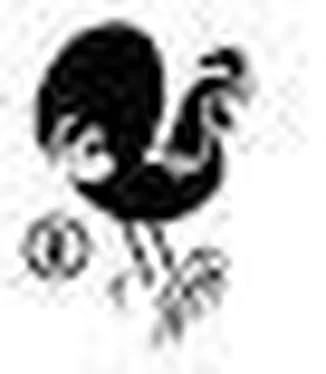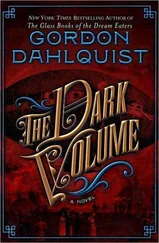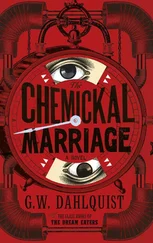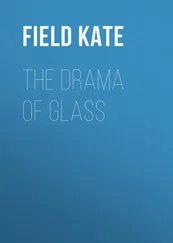Her fingers tore behind her at the knotwork of the corset, for now she was concerned about taking too long, and did not want anyone coming in to collect her when she was half-naked, and once she was free of it—and taking deeper breaths than she was used to—she pulled the corset and her shift over her head. She pulled on the silk bodice, sleeveless, with tiny straps to keep it up, and tugged it into place over her bosom. She had to admit that it felt delicious. She pushed her petticoats and breeches down to the floor and, balancing on one foot and then the other, kicked her shoes free of them. She reached for the little pants, feeling a strange thrill at standing in such a large room wearing nothing but the bodice, which did not stretch below her ribs, and her green ankle boots. Stranger still, pulling on the pants, was how she felt somehow even more naked, with the open seam along her delicate curls. She ran her fingers through them once, finding the exposure both exquisite and a little frightening. She removed her fingers, sniffed them by habit, and reached for the silken petticoats, holding them open and stepping through the circle one foot at a time. She pulled them up, tied them off, and then reached again for her corset.
Before she put it on, Miss Temple stepped in front of the large mirror. The woman who stared back was unknown to her. It was partially the mask—the experience of looking at herself in a mask was extremely curious, and not unlike running her fingers along her open pants. She felt a tingle crawl down her spine and settle itself right among her hips, a ticking restless hunger. She licked her lips, and watched the woman in the mask of white feathers lick hers as well—but this woman (her pale arms bare, her legs muscular, throat exposed, roseate nipples at plain view through the bodice) licked them in quite a different way than seemed normal to Miss Temple—though once she saw that image, its sensation was, as it were, taken into her, and she licked them again as if some transformation had indeed been made. Her eyes glittered.
She dropped the corset back into the cabinet and put on the robes, first the shorter one with sleeves, and then over it the larger, almost like a tunic, with the borders of green embroidery, which did in fact have several hooks to keep it closed. She looked at herself again in the mirror, and was happy to see that together the two layers of robe provided enough of a barrier for decency. Her arms and lower legs were still semi-visible through their single layers, but the rest of her body, though suggested, could not in any detail be seen. As a final precaution, because she had not fully lost her sense of place or perspective, Miss Temple fished in the pocket of her cloak for both her money and her all-weather pencil, which was still rather sharp. Then she knelt on alternating knees, stuffing the money into one boot and wedging the pencil into the other. She stood, took a couple of steps to test comfort, closed the cabinet, and then walked through the inner door.
She was in a narrow unfinished hallway. She walked a few paces in gradually growing light and reached a turn where the floor slanted up toward the bright light’s source. She stepped into glaring light and raised a hand to block it, looking around her. It was a kind of sunken stage—above and around it rose a seating gallery pitched at a very steep angle, covering three sides of the room. The stage itself, what she took for playing space, was taken up with a large table, at the present moment flat but with a heavy apparatus underneath, which, she assumed from the large, notched curve of steel running the length of the table, could tilt the table to any number of angles, for better viewing from the gallery. Behind the table, on the one wall without seating, was a common, if enormously large, blackboard.
It was an operating theatre. She looked to either side of the table and saw holes that dangled leather belts, to restrain limbs. She saw a metal drain on the floor. She smelled vinegar and lye, but beneath them some other odor that prickled the back of her throat. She looked up at the blackboard. This was for teaching, for study, but no mere man of science could afford such a home. Perhaps this Lord was their patient—but what patient would want an audience for his treatment? Or patron to some medical prodigy—or himself a practicing amateur—or an interested spectator? Her flesh was chilled. She swallowed, and noticed something written on the board—she hadn’t seen it from the entrance because of the light. The surrounding text had been erased—indeed, half of this word had been erased—but it was easy to see what it had been: sharp block printing, in chalk, the word “ORANGE.”
Miss Temple was startled—indeed, she may have squeaked in surprise—by a throat being cleared on the far side of the stage, from shadow. There was an opposite rampway rising up from the floor she hadn’t seen, hidden by the table. A man stepped into view, wearing a black tailcoat, a black mask, and smoking a cigar. His beard was elegantly trimmed, and his face familiarly ruddy. It was one of her two dogs from the train, who had been sitting across from Roger. He looked at her body quite directly, and cleared his throat again.
“Yes?” she asked.
“I have been sent to collect you.”
“I see.”
“Yes.” He took a puff on the cigar but otherwise did not move.
“I’m sure I’m sorry to make anyone wait.”
“I didn’t mind. I like to look around.” He looked again, frankly examining her, and stepped fully up from the ramp into the theatre, raising his cigar hand above his eyes to block the light. He glanced over the gallery, to the table, and then to her again. “Quite a place.”
Miss Temple adopted, without difficulty, a knowing condescension. “Why, have you never been here?”
He studied her before answering, then decided not to answer, and stuck the cigar into his mouth. With his hand free, he pulled a pocket watch from his black waistcoat and looked at the time. He replaced the watch, inhaled, then removed the cigar, blowing smoke.
Miss Temple spoke again, affecting as casual an air as possible.
“I have always found it to be an elegant house. But quite…particular.”
He smiled. “It is that.”
They looked at each other. She very much wanted to ask him about Roger, but knew it wasn’t the time. If Roger was, as she suspected, peripheral, then asking for him by name—especially a guest in her strange position (as much as she did not fully understand what that was)—would only arouse suspicion. She must wait until she and Roger were in the same room and—while both were masked—try to engage someone in conversation and point him out.
But being alone with anyone was still an opportunity, and despite her terrible sense of disquiet and unease, in order to try and provoke this canine fellow further, she let her eyes wander to the blackboard, looking fixedly at the half-erased word, and then back to him, as if pointing out that someone had not fully done their job. The man saw the word. His face twitched in a quick grimace and he stepped to the board, wiping the word away with his black sleeve, and then beating ineffectually on the sleeve to get rid of the chalk smear. He stuck the cigar in his mouth and offered her his arm.
“They are waiting.”
She walked past the table and took it, bobbing her head as she did. His arm was actually quite strong and he held hers tightly, even awkwardly, as he was so much taller. As they walked down the ramp into darkness, he spoke, nodding his head back to the theatre. “I don’t know why they had you go through there—I suppose it’s the shortest way. Still, it’s quite a sight—not what you’d expect.”
“That depends,” Miss Temple answered. “What do you expect?”
Читать дальше






![Theresa Cheung - The Dream Dictionary from A to Z [Revised edition] - The Ultimate A–Z to Interpret the Secrets of Your Dreams](/books/692092/theresa-cheung-the-dream-dictionary-from-a-to-z-r-thumb.webp)





